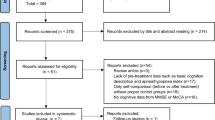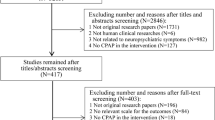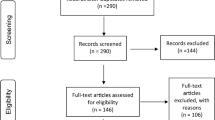Abstract
Objectives
Little is known about combined effect of obstructive sleep apnea (OSA) and chronic smoking on cognitive impairment. We aimed to determine whether smoking synergizes with OSA in deteriorating cognitive function and whether smoking cessation contributes to cognitive benefits.
Methods
One hundred and eighteen male patients were enrolled in the study and asked to complete neurocognitive function tests including Mini-Mental State Examination (MMSE), Montreal Cognitive Assessment (MoCA), clock drawing test (CDT), and verbal fluency test (VFT). Variables of those neurocognitive function tests were analyzed with two factors: OSA and smoking.
Results
After adjustment of potential confounding factors, an OSA-by-smoking interaction was found in CDT-C scores and a main smoking effect were showed in MoCA scores. Smoking patients with OSA had the worst performance in the four tests compared with the other three groups (smoking patients without OSA, non-smoking patients with and without OSA). Ex-smokers with OSA tended to perform better than current smokers, but still worse than never-smokers with OSA in those tests.
Conclusion
The results suggested that the coexistence of OSA and chronic smoking resulted in more pronounced cognitive deficits than either factor along. Smoking cessation may benefit cognitive function to some extents in patients with OSA.
Similar content being viewed by others
References
Malhotra A, White DP (2009) Obstructive sleep apnea. Lancet 360:237–245
Arnardottir ES, Mackiewicz M, Gislason T, Teff KL, Pack AI (2009) Molecular signatures of obstructive sleep apnea in adults: a review and perspective. Sleep 32:447–470
Bradley TD, Floras JS (2009) Obstructive sleep apnoea and its cardiovascular consequences. Lancet 373:82–93
Tasali E, Mokhlesi B, Van Cauter E (2008) Obstructive sleep apnea and type 2 diabetes: interacting epidemics. Chest 133:496–506
Ayalon L, Ancoli-Israel S, Drummond SP (2010) Obstructive sleep apnea and age: a double insult to brain function? Am J Respir Crit Care Med 182:413–419
Xu M, Yang Y, Zhang J (2013) Levels of neuroglobin in serum and neurocognitive impairments in Chinese patients with obstructive sleep apnea. Sleep Breath 17:573–582
Olaithe M, Bucks RS (2013) Executive dysfunction in OSA before and after treatment: a meta-analysis. Sleep 36:1297–1305
Lal C, Strange C, Bachman D (2012) Neurocognitive impairment in obstructive sleep apnea. Chest 141:1601–1610
Mathieu A, Mazza S, Décary A, Massicotte-Marquez J, Petit D, Gosselin N, Malo J, Montplaisir J (2008) Effects of obstructive sleep apnea on cognitive function: a comparison between younger and older OSAS patients. Sleep Med 9:112–120
Engleman HM, Kingshott RN, Martin SE, Douglas NJ (2000) Cognitive function in the sleep apnea/hypopnea syndrome (SAHS). Sleep 23(Suppl4):S102–S108
Ward KL, Hillman DR, James A, Bremner AP, Simpson L, Cooper MN, Palmer LJ, Fedson AC, Mukherjee S (2013) Excessive daytime sleepiness increases the risk of motor vehicle crash in obstructive sleep apnea. J Clin Sleep Med 9:1013–1021
Li Y, Veasey SC (2012) Neurobiology and neuropathophysiology of obstructive sleep apnea. Neuromol Med 14:168–179
Yaouhi K, Bertran F, Clochon P, Mézenge F, Denise P, Foret J, Eustache F, Desgranges B (2009) A combined neuropsychological and brain imaging study of obstructive sleep apnea. J Sleep Res 18:36–48
Canessa N, Castronovo V, Cappa SF, Aloia MS, Marelli S, Falini A, Alemanno F, Ferini-Strambi L (2011) Obstructive sleep apnea: brain structural changes and neurocognitive function before and after treatment. Am J Respir Crit Care Med 183:1419–1426
Dome P, Lazary J, Kalapos MP, Rihmer Z (2010) Smoking, nicotine and neuropsychiatric disorders. Neurosci Biobehav Rev 34:295–342
Peters R, Poulter R, Warner J, Beckett N, Burch L, Bulpitt C (2008) Smoking, dementia and cognitive decline in the elderly, a systematic review. BMC Geriatr 8:36–44
Nooyens AC, van Gelder BM, Verschuren WM (2008) Smoking and cognitive decline among middle-aged men and women: the Doetinchem Cohort Study. Am J Public Health 98:2244–2250
Swan GE, Lessov-Schlaggar CN (2007) The effects of tobacco smoke and nicotine on cognition and the brain. Neuropsychol Rev 17:259–273
Durazzo TC, Meyerhoff DJ, Nixon SJ (2010) Chronic cigarette smoking: implications for neurocognition and brain neurobiology. Int J Environ Res Public Health 7:3760–3791
Kashyap R, Hock LM, Bowman TJ (2001) Higher prevalence of smoking in patients diagnosed as having obstructive sleep apnea. Sleep Breath 5:167–172
Lavie L, Lavie P (2008) Smoking interacts with sleep apnea to increase cardiovascular risk. Sleep Med 9:247–253
Guo QH, Fu JH, Yuan J, Zhao QH, Cao XY, Hong Z (2008) A study of validity of a new scoring system of colock drawing test. Chin J Neurol 41:234–237 (in Chinese)
Wang P, Shi L, Zhao Q, Hong Z, Guo Q (2014) Longitudinal changes in clock drawing test (CDT) performance before and after cognitive decline. PLoS One 29:e97873
Sabia S, Elbaz A, Dugravot A, Head J, Shipley M, Hagger-Johnson G, Kivimaki M, Singh-Manoux A (2012) Impact of smoking on cognitive decline in early old age: the Whitehall II cohort study. Arch Gen Psychiatry 69:627–635
Sabia S, Marmot M, Dufouil C, Singh-Manoux A (2008) Smoking history and cognitive function in middle age from the Whitehall II study. Arch Intern Med 168:1165–1173
Chen R, Xiong KP, Huang JY, Lian YX, Jin F, Li ZH, Zhao MY, Liu CF (2011) Neurocognitive impairment in Chinese patients with obstructive sleep apnoea hypopnoea syndrome. Respirology 16:842–848
Beebe DW, Groesz L, Wells C, Nichols A, McGee K (2003) The neuropsychological effects of obstructive sleep apnea a meta-analysis of norm-referenced and case-controlled data. Sleep 26:298–307
Casasola GG, Alvarez-Sala JL, Marques JA, Sánchez-Alarcos JM, Tashkin DP, Espinós D (2002) Cigarette smoking behavior and respiratory alterations during sleep in a healthy population. Sleep Breath 6:19–24
Conway SG, Roizenblatt SS, Palombini L, Castro LS, Bittencourt LR, Silva RS, Tufik S (2008) Effect of smoking habits on sleep. Braz J Med Biol Res 41:722–727
Bonsignore MR, Parati G, Insalaco G, Castiglioni P, Marrone O, Romano S, Salvaggio A, Mancia G, Bonsignore G, Di Rienzo M (2006) Baroreflex control of heart rate during sleep in severe obstructive sleep apnoea: effects of acute CPAP. Eur Respir J 27:128–135
Lin YN, Li QY, Zhang XJ (2012) Interaction between smoking and obstructive sleep apnea: not just participants. Chin Med J (Engl) 125:3150–3156
Wetter DW, Young TB, Bidwell TR, Badr MS, Palta M (1994) Smoking as a risk factor for sleep-disordered breathing. Arch Intern Med 154:2219–2224
Zhang L, Samet J, Caffo B, Punjabi NM (2006) Cigarette smoking and nocturnal sleep architecture. Am J Epidemiol 164:529–537
Zhang L, Samet J, Caffo B, Bankman I, Punjabi NM (2008) Power spectral analysis of EEG activity during sleep in cigarette smokers. Chest 133:427–432
Schrand JR (1996) Is sleep apnea a predisposing factor for tobacco use? Med Hypotheses 47:443–448
Fried PA, Watkinson B, Gray R (2006) Neurocognitive consequences of cigarette smoking in young adults–a comparison with pre-drug performance. Neurotoxicol Teratol 28:517–525
Starr JM, Deary IJ, Fox HC, Whalley LJ (2007) Smoking and cognitive change from age 11 to 66 years: a confirmatory investigation. Addict Behav 32:63–68
Contributors
L.Y.N, Z.X.J, and L.Q.Y designed the study, made plans, and collected the data. L.Y.N, Z.L.N, and L.Q.Y finished the data analysis and interpretation. L.Y.N, Z.L.N, Z.X.J, L.Q.Y, W.Q, and X.H.J drafted and revised the article for important intellectual content. All authors approved the manuscript finally.
Conflict of interest
All authors acclaimed that they had no conflict of interest.
Funding
The study was supported by Pfizer China Tobacco Control Competitive Grant (No. WS766932).
Author information
Authors and Affiliations
Corresponding author
Additional information
Ying Ni Lin and Li Na Zhou are co-first authors.
Rights and permissions
About this article
Cite this article
Lin, Y.N., Zhou, L.N., Zhang, X.J. et al. Combined effect of obstructive sleep apnea and chronic smoking on cognitive impairment. Sleep Breath 20, 51–59 (2016). https://doi.org/10.1007/s11325-015-1183-1
Received:
Revised:
Accepted:
Published:
Issue Date:
DOI: https://doi.org/10.1007/s11325-015-1183-1




